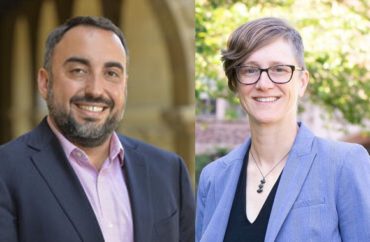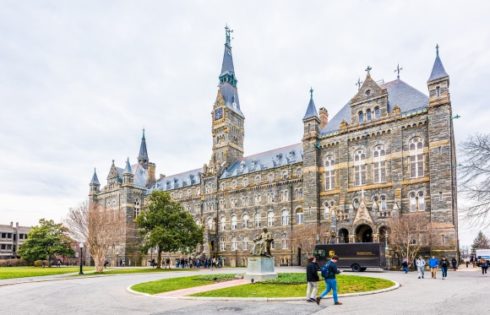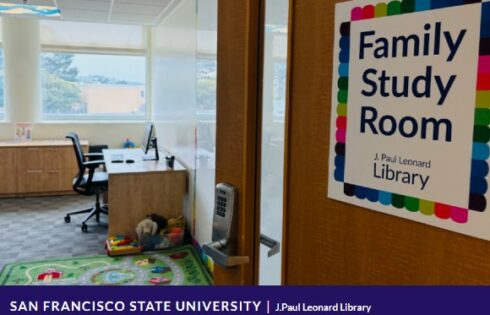
Lawsuit calls for private orgs to stop collaborating with the government on social media censorship
Academics at Stanford University and the University of Washington have been accused of a “conspiracy” with the federal government to violate the First Amendment rights of social media users.
A pending federal lawsuit named several entities who worked with federal agencies to flag social media content related to the 2020 election and COVID-19 vaccines as “misinformation” and urged platforms to suppress it as part of two initiatives – one called the Election Integrity Partnership and the Virality Project.
The plaintiffs are the leaders of Health Freedom Louisiana and the conservative news website Gateway Pundit, who both alleged their content was targeted. They accused the universities and nonprofits of acting under government authority in their censorship efforts and in violation of the Constitution.
The plaintiffs requesed damages and that all such activity between the government and the private sector would cease.
Among the defendants are Stanford University’s Internet Observatory, two of its top researchers, Alex Stamos (pictured) and Renee Diresta, Stanford’s board of trustees, Stanford itself, and Kate Starbird (pictured), who is the director of UW’s Center for an Informed Public.
The College Fix asked Stanford and UW via email for comment on the allegations and whether an attorney reviews the programs at their research institutes to ensure legal compliance. Stanford’s media team did not respond to two inquiries sent in the past week.
“The UW stands behind the Center for an Informed Public’s work,” Victor Balta, a UW spokesperson, said in an email to The Fix. “Given the potential litigation, we are unable to provide any further comment.”
America First Legal, one of the groups behind the lawsuit, explained the importance of the lawsuit.
“America First Legal is striking at the heart of the censorship-industrial complex for our clients,” AFL President Stephen Miller, a former aide to President Donald Trump, stated in the news release.
“We are filing a landmark class action lawsuit against the organizers and architects of an elaborate conspiracy to surveil and censor Americans to stop them from exercising their fundamental right to free speech,” Miller said. “To silence, banish, and deprive them of the means to earn a living.”
Miller described these activities as “a regime of surveillance, censorship, and control fit for communist China.”
“Under the Orwellian guise of policing ‘mis’ and ‘disinformation,’ the organizations and entities we are suing today are responsible for radically eroding the rights and liberties upon which the survival of free society depends,” Miller stated.
Miller promised that AFL will seek “full and complete justice for their victims” and “lead the charge to rescue America from tyranny.”
Lawsuit highlights the researchers’ ties to federal agencies
The universities worked with the U.S. government as part of two initiatives that included flagging links on social media.
The EIP published a 2021 report showing that it flagged over 4,800 links on platforms like Facebook, YouTube, and Twitter as “misinformation” for spreading doubt about the security of the 2020 election. Homeland’s Cybersecurity and Infrastructure Security Agency and the State Department’s Global Engagement Center then filed “tickets” requesting platforms to review the items for possible removal.
The EIP noted that 35 percent of ticketed content was “either labeled [misinformation], removed, or soft blocked.”
“The initial idea” for the EIP, the report explained, came from four Stanford students who were interns for CISA. Private entities then created the EIP “in consultation with” the agency to fill a “critical gap” in the government’s efforts against what it considers false information.
President Joe Biden’s National Science Foundation later awarded $3 million to Stanford and UW “to study ways to apply collaborative, rapid-response research to mitigate online disinformation.”
DiResta, with the University of Washington, acknowledged in a 2021 video that the government hoped to evade “unclear legal authorities” and “very real First Amendment questions” by using private entities to silence social media users, the lawsuit notes.
Attorneys also described “the overlap of personnel between CISA and the EIP” by pointing out that Stamos, DiResta, and Starbird have all served on CISA’s Cybersecurity Advisory Committee or one of its subcommittees.
The same organizations involved in the election project later used a similar ticketing system on content related to “narratives that questioned the safety, distribution, and effectiveness of” COVID vaccines as part of the Virality Project.
The coalition’s 2022 report noted that it “built strong ties with several federal government agencies,” including the Centers for Disease Control and Prevention and the Office of the Surgeon General.
MORE: Jordan Peterson rejects mandatory social media ‘retraining’
IMAGES: Stanford University; University of Washington
Like The College Fix on Facebook / Follow us on Twitter






Please join the conversation about our stories on Facebook, Twitter, Instagram, Reddit, MeWe, Rumble, Gab, Minds and Gettr.